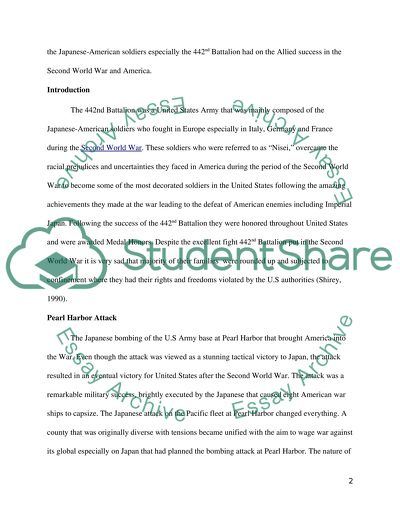Cite this document
(“What Effect did the 442nd Battalion Have on the Allied Success in Research Paper”, n.d.)
Retrieved from https://studentshare.org/history/1437049-what-effect-did-the
Retrieved from https://studentshare.org/history/1437049-what-effect-did-the
(What Effect Did the 442nd Battalion Have on the Allied Success in Research Paper)
https://studentshare.org/history/1437049-what-effect-did-the.
https://studentshare.org/history/1437049-what-effect-did-the.
“What Effect Did the 442nd Battalion Have on the Allied Success in Research Paper”, n.d. https://studentshare.org/history/1437049-what-effect-did-the.


